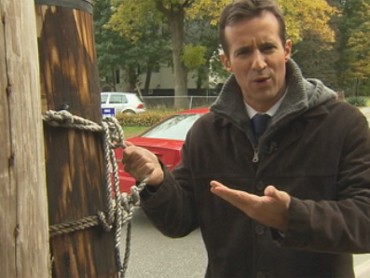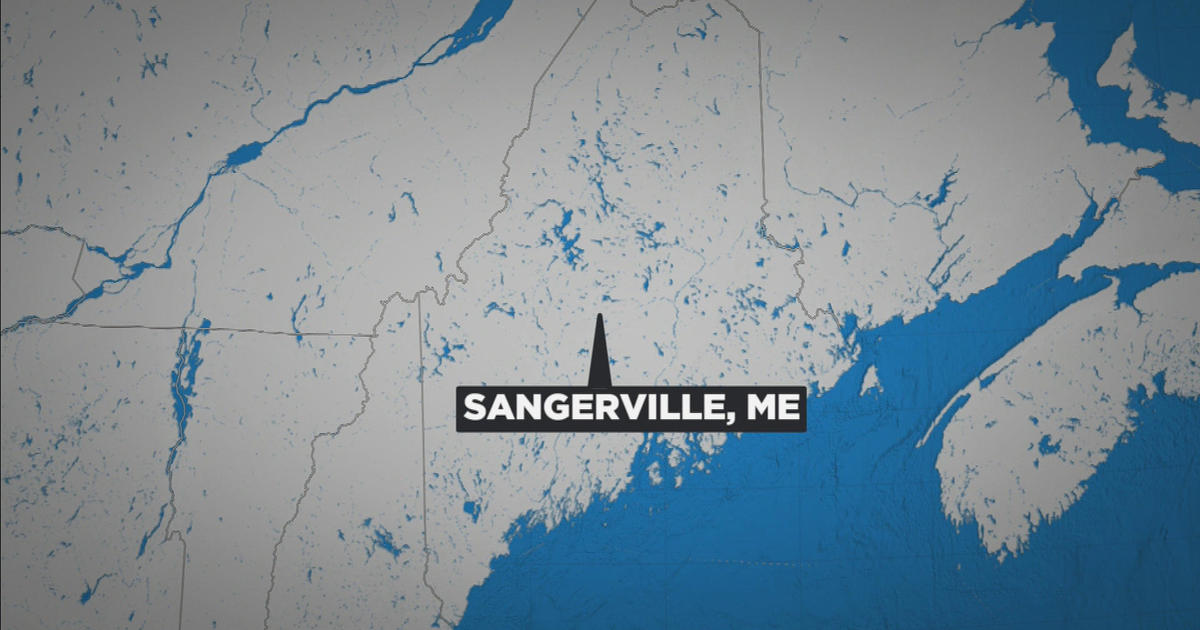What's Up With The Ugly 'Double Poles'?
 WBZ
WBZ
You can see the problem all over the state. They're called "double poles," a new utility pole attached to an old one, sometimes precariously.
Alan from Beverly doesn't like it. He Declared his Curiosity to WBZ: "Who is required to take care of the telephone/power poles? I found a few that look like accidents waiting to happen."
When we started looking into it, we found that utility companies are sometimes breaking a state law that is never enforced.
ILLEGAL, UNATTRACTIVE, UNSAFE?
The poles were easy to find. Some of them held together with wood strips, others with wire. Alan Long, who brought the double poles to our attention, showed us a particularly nasty one in Beverly. "It's splintered all the way up. You've got, I guess that's electrical tape holding it together, you've got rope. It doesn't seem very safe to me," he said.
"I think they're extremely unattractive," says Mark Rees, North Andover's Town Manager.
Rees says double poles are bad for the town's image, especially since there's a state law that says the pole's owner has to remove the old pole within 90 days of installing the new one. There are some double poles in North Andover that have been up for four or five years. "Yes, and that's a major concern of ours," said Rees.
BY THE NUMBERS
The double poles are usually set up when utilities like Verizon, National Grid and NStar upgrade service and need a new, stronger pole to carry new wires.
The state Department of Public Utilities keeps a tally of all the double poles in Massachusetts.
We asked for the list. It's more than 600 pages thick, listing more than 26,000 double poles. The problem is, every entity that has wires on the old pole, including cable companies and even a city or town, have to move their wires before the pole can come down.
THE BLAME GAME
"So what?" you might ask. We don't get to choose which laws to obey. Well get this. This particular law has no enforcement powers. "We call [the utilities] and ask, what are you going to do about it, and they keep pushing us off," Rees said.
The three utility companies sort of pushed us off, too. Not one would talk on-camera, and only one, National Grid, gave us a statement blaming the delays on the complexity of "managing and coordinating multiple utilities, municipalities and other entities while all attempt to address removal."
The utilities argue that they can't force other companies to move their wires in a timely fashion. So while it's apparently too complex to obey the law, it's also too easy for the utilities to side step the rules.
There is a bill before state legislators that would hit utilities with a fine if they don't comply with the rules. That law has been on Beacon Hill before, and has never gotten out of committee. The utilities, of course, oppose the proposed law arguing that it does not give them the power to get other entities to move their wires. Meanwhile, get used to seeing double.
Is there something that makes you Curious? Declare Your Curiosity to WBZ.
© MMX, CBS Broadcasting Inc. All Rights Reserved.



